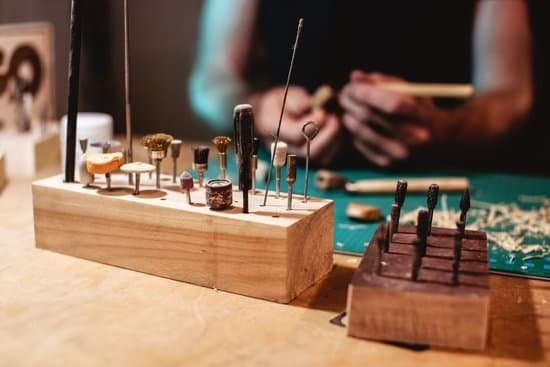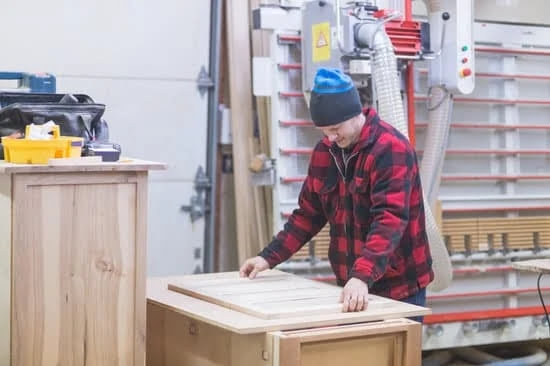What are the basic tools needed for woodworking? Woodworking is a rewarding and creative hobby or profession, but it requires the right tools to ensure accuracy, safety, and quality in your projects. Whether you are a beginner or an experienced woodworker, having the essential tools is crucial for success in your woodworking endeavors.
Having the right tools for woodworking is essential not only for creating beautiful and functional pieces but also for ensuring safety in the workshop. From measuring and marking tools to cutting, joinery, and finishing tools, each type of tool plays a vital role in the woodworking process. Additionally, power tools can increase efficiency and precision in your projects.
In this article, we will explore the basic tools needed for woodworking, including essential safety gear and equipment, measuring and marking tools for accuracy, cutting tools such as saws and chisels, joinery tools for creating strong wood joints, finishing tools for a professional look, essential power tools like drills and sanders, as well as tips for tool storage and maintenance.
Whether you are just starting out in woodworking or looking to expand your collection of tools, understanding their importance and functionality is key to successful woodworking projects.
Safety First
Woodworking is a rewarding and fulfilling hobby or profession, but it also comes with certain risks. This is why safety should always be a top priority. Before starting any woodworking project, it’s important to have the right safety gear and equipment. One essential item is a pair of safety goggles to protect your eyes from flying wood chips and sawdust. A good-quality dust mask is also crucial for preventing inhalation of fine particles that can cause respiratory issues.
In addition to protective gear for the eyes and lungs, ear protection should not be overlooked when working with loud power tools such as routers, planers, and table saws. Noise-induced hearing loss can occur over time if proper ear protection is not used. Finally, having a set of good-quality work gloves can help protect your hands from cuts, splinters, and other injuries while working with wood.
While these are just some of the basic safety gear and equipment needed for woodworking, they are essential in keeping woodworkers safe while pursuing their craft.
| Safety Gear | Importance |
|---|---|
| Safety Goggles | Protects eyes from flying wood chips and sawdust |
| Dust Mask | Prevents inhalation of fine particles |
| Ear Protection | Protects against noise-induced hearing loss |
| Work Gloves | Protects hands from cuts and splinters |
Measuring and Marking Tools
- Tape Measure: A tape measure is one of the most basic and essential tools for woodworking. It allows you to accurately measure the length, width, and thickness of wood pieces, helping you plan and execute your projects with precision.
- Combination Square: This versatile tool combines a ruler and a 90-degree angle tool, allowing you to mark straight lines and check for squareness in your woodworking projects. It is an indispensable tool for ensuring accurate measurements and angles.
- Marking Gauge: A marking gauge is used to create consistent lines parallel to the edge of the wood, ensuring precise cuts and joinery. It helps woodworkers achieve clean and accurate markings for mortises, tenons, and other woodworking tasks.
- Chalk Line: For longer measurements or layout work, a chalk line can be extremely useful. It allows you to create long straight lines on your workpiece quickly and accurately.
- Calipers: Measuring precise dimensions on small items such as dowels or hardware is where calipers come in handy. They allow for very accurate measurements that can’t be achieved using traditional measuring tools.
By having these basic measuring and marking tools in your workshop, you will be equipped to tackle a wide variety of woodworking projects with precision and confidence. These tools are essential for laying out cuts, identifying reference points, confirming dimensions, achieving accurate joinery, ensuring consistency across multiple pieces, all critical aspects of any woodworking project – regardless of size or complexity.
Cutting Tools
When it comes to woodworking, having the right cutting tools is essential for shaping and cutting wood with precision. Whether you are a beginner or a seasoned woodworker, having the appropriate saws, chisels, and planes can make a significant difference in the outcome of your projects.
One of the basic tools needed for woodworking is a high-quality handsaw. This tool is essential for making straight or curved cuts on wood. There are different types of handsaws available, including crosscut saws for cutting across the wood grain, and rip saws for cutting along the wood grain. Additionally, having a coping saw for intricate and detailed cuts can be beneficial.
Chisels are also important cutting tools for woodworking. They are used for carving out precise shapes, creating joints, smoothing surfaces, and removing waste wood. Chisels come in various sizes and shapes to accommodate different woodworking needs. Another essential cutting tool is a hand plane, which is used for smoothing and flattening wooden surfaces. These tools allow woodworkers to achieve smooth finishes and precise fits in their projects.
Joinery Tools
When it comes to woodworking, creating strong and secure wood joints is essential for the structural integrity of your projects. To achieve this, there are several basic tools that every woodworker should have in their arsenal. These tools are crucial for joining pieces of wood together seamlessly and securely, whether you’re working on a simple DIY project or a more complex piece of furniture.
To ensure that your woodworking projects stand the test of time, here are the must-have joinery tools that you should have in your workshop:
- Woodworking Clamps: Clamps are essential for holding pieces of wood in place while you work on joining them together. They come in various sizes and styles, including bar clamps, pipe clamps, and C-clamps.
- Woodworking Squares: Accurate measuring and marking are crucial for creating precise wood joints. A combination square, try square, and speed square are all indispensable for ensuring that your joints are perfectly aligned.
- Dovetail Saw: Dovetail joints are known for their strength and aesthetic appeal. A dovetail saw is specifically designed to cut these angled joints with precision.
- Chisels: Whether you’re cutting mortises or paring down tenons, a set of sharp chisels in various sizes is essential for achieving a perfect fit when creating wood joints.
These joinery tools will enable you to create strong and secure wood joints that not only look professional but also provide lasting durability to your woodworking projects. By investing in these basic tools, you’ll be well-equipped to tackle a wide range of joinery techniques with confidence and precision.
Finishing Tools
When it comes to woodworking, having the right finishing tools is essential for achieving a professional and polished look on your projects. From sanding to staining and applying finishes, these tools are crucial for turning raw wood into beautiful pieces of furniture or art.
Sanding Tools
Sanding is an important step in woodworking as it helps smooth out rough surfaces and prepare the wood for staining or painting. The basic sanding tools you will need include sandpaper in various grits, a sanding block or electric sander, and possibly a power sander for larger projects. It’s important to have a range of grits to start with coarse sandpaper for heavy material removal and gradually move to finer grits for a smoother finish.
Staining and Finishing Tools
After sanding, you may choose to stain your wood to enhance its natural color or add some pigment. Staining can be done using brushes, rags, or foam applicators depending on the size and type of project. It’s also essential to have some finishing tools such as paintbrushes, lacquer applicators, or spray guns for applying protective finishes like varnishes or polyurethane. These tools will give your woodworking projects a professional look while protecting the wood from damage.
Having the right finishing tools can make all the difference in how your woodworking projects turn out. Whether you’re smoothing out rough surfaces with sandpaper or adding the final coat of varnish, these tools are essential for achieving a polished and professional finish on your workpieces.
Essential Power Tools for Woodworking
When it comes to woodworking, having the right power tools can make a significant difference in the quality and efficiency of your work. Power tools not only make the process faster but also more precise, allowing for cleaner cuts and smoother finishes. In this section, we will explore the essential power tools needed for woodworking, from drills to sanders.
Power Drill
One of the most basic and versatile power tools for woodworking is the power drill. Whether you’re driving screws or drilling holes, a good quality drill is essential. Look for one with variable speed settings and a clutch to prevent over-tightening of screws.
Electric Sander
To achieve smooth and well-finished surfaces on your wood projects, an electric sander is a must-have. Whether it’s a belt sander, orbital sander, or random orbital sander, these power tools are designed to save time and effort in sanding down wood surfaces.
Jigsaw or Circular Saw
For cutting curves or straight lines in wood, a jigsaw or circular saw is essential. These power tools are perfect for making intricate cuts and shaping wood pieces according to your design.
By investing in these essential power tools for woodworking, you can significantly expand your capabilities as a woodworker while achieving professional results in your projects. It’s important to familiarize yourself with each tool’s features and safety guidelines before use to ensure precision and safety while working on any woodworking project.
Tool Storage and Maintenance
Woodworking is a fulfilling and rewarding hobby, but it’s important to have the right tools and equipment to ensure safety and accuracy in your projects. Once you’ve gathered the basic tools needed for woodworking, it’s essential to focus on storing and maintaining them properly. Proper tool storage and regular maintenance not only prolong the life of your tools but also ensure that they are always ready for use when you need them.
One of the most important aspects of tool storage is organization. A well-organized workshop or storage area makes it easier to find the tools you need, reducing wasted time searching for misplaced items. Consider investing in a tool chest, wall-mounted pegboards, or even custom-built shelving to keep your woodworking tools organized and easily accessible. Additionally, labeling drawers or shelves can help you quickly locate specific tools when working on a project.
In terms of maintenance, keeping your woodworking tools in top shape involves regular cleaning and sharpening. After each use, wipe down your hand tools with a clean cloth to remove sawdust, debris, or any moisture that could cause rust. For cutting tools such as chisels and planes, it’s crucial to keep the blades sharp for precise cuts.
Invest in a quality sharpening stone or honing guide to maintain the sharpness of these essential tools. It’s also important to periodically check power tool blades and bits for any signs of wear and tear, replacing them as needed to ensure optimal performance.
By devoting time and attention to proper tool storage and maintenance, you can preserve the quality and functionality of your woodworking tools for years to come. This not only saves you money in the long run but also contributes to safer and more efficient woodworking projects overall. Remember that taking care of your tools is an integral part of being a skilled woodworker.
Conclusion
In conclusion, having the right tools for woodworking is essential for anyone looking to work with wood. The basic tools needed for woodworking include safety gear, measuring and marking tools, cutting tools, joinery tools, finishing tools, essential power tools, and proper storage and maintenance to keep everything in good condition.
When starting out in woodworking, it’s important to invest in high-quality tools that will last and provide accurate results. Safety gear such as goggles, gloves, and a dust mask are crucial for protecting yourself while working with wood. Measuring and marking tools such as a tape measure, combination square, and marking gauge are necessary for ensuring accuracy in your woodworking projects.
Cutting tools like saws, chisels, and planes are needed for shaping and cutting wood to the desired dimensions. Joinery tools such as a hammer, mallet, and hand drill are essential for creating strong and secure wood joints. Finishing tools like sandpaper, stain, and finish will give your projects a professional look. Essential power tools like drills and sanders will help speed up the woodworking process.
As you continue to build your collection of woodworking tools step by step, remember to prioritize safety and accuracy in your work. Investing in quality tools will not only make your projects easier but also ensure that they turn out the way you envision them.

Hi everyone! I’m a woodworker and blogger, and this is my woodworking blog. In my blog, I share tips and tricks for woodworkers of all skill levels, as well as project ideas that you can try yourself.





